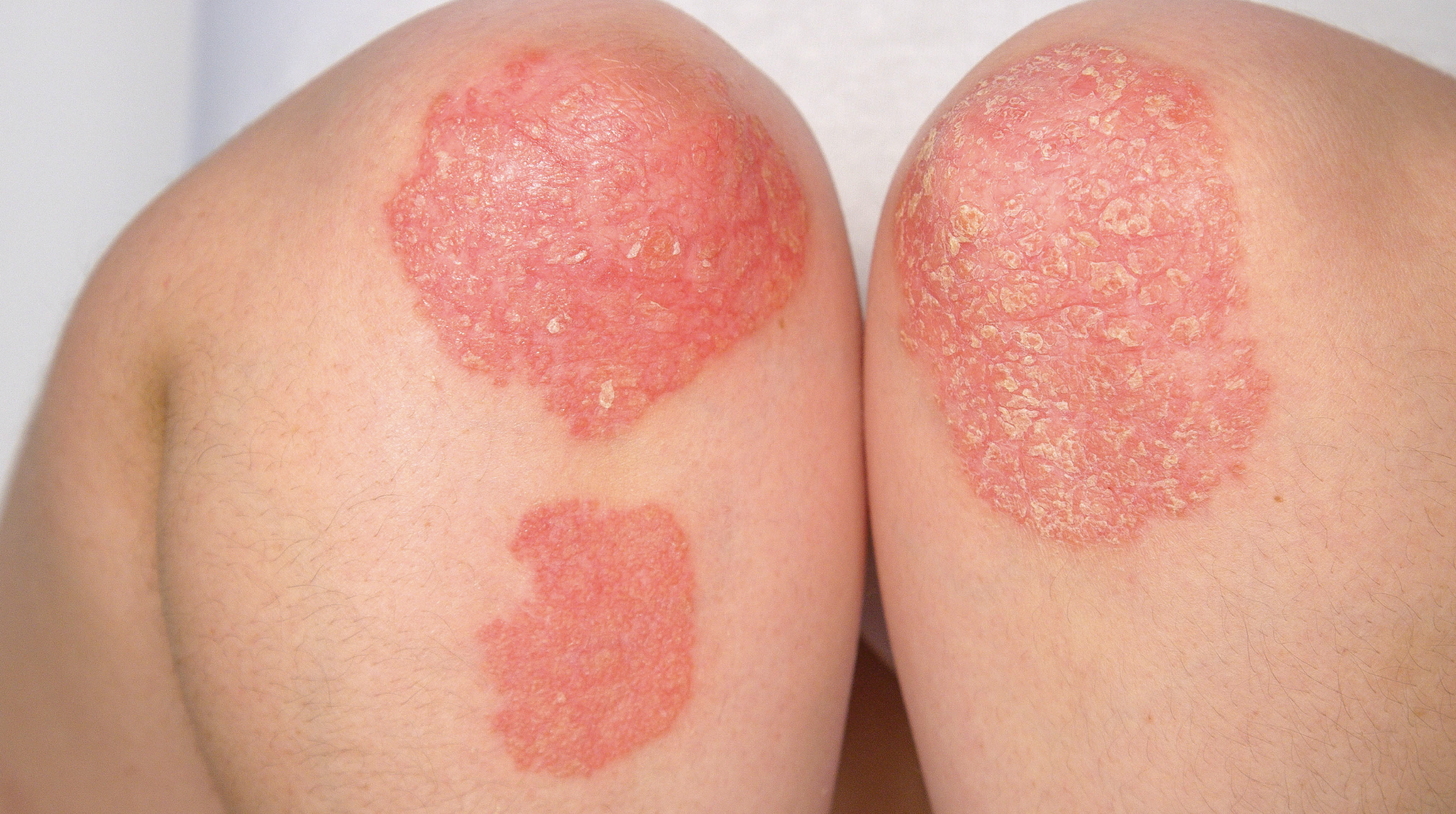
Personalised skin guidance designed to meet your medical and aesthetic needs.
Your skin in good hands.
Psoriasis
Psoriasis is a chronic inflammatory skin condition that affects up to 2% if the population in the UK. It can affect people from all ages (including children) and although there is no such thing as a cure there are a variety of very effective treatments that can improve symptoms and quality of life. There is often a genetic predisposition, and different triggers can make if manifest (stress, injuries, infections, alcohol, smoking, cold dry weather and certain medications). It can also be associated with other health conditions like psoriatic arthritis, inflammatory bowel disease, heart disease, diabetes, obesity, metabolic syndrome, anxiety and depression.
There are different types of psoriasis:
Plaque psoriasis: the most common form, it appears as raised inflamed red patches of skin with a thick silvery scale. It tends to affect the trunk, limbs and scalp.
Guttate Psoriasis: from the Latin name for “drop”, this manifests as small widespread lesions that can appear anywhere in the body but mainly on the limbs and torso. It can be common in young people and be precipitated Streptococcus infection ( i.e. sore throat).
Inverse or flexural psoriasis: This type can affect skin folds like groins, natal cleft, axilla, under breasts and abdomen and genitalia. It has a raw red glazed appearance and can cause discomfort with friction and sweating.
Pustular psoriasis: It appears as pustules surrounded by red inflamed skin and can be localised (palms and soles) or widespread with large sheets of skin involved.
Erythrodermic psoriasis: 80-90% of the total body surface is red and inflamed, the skin is painful and itchy. This is a dermatological emergency and should be treated in hospital.
Different types of psoriasis may co-exist on the same patient, and all types can affect the nails and the joints.
Treatment often involves a combination of modalities and can include:
Lifestyle modifications: healthy diet, exercise, reduce stress, stop smoking and alcohol
Topical treatments: emollients, corticosteroids, vitamin D analogues, calcineurin inhibitors, retinoids and coal tar preparations can be all be used.
Phototherapy: this can be either UVB (narrow band TL-01) or PUVA (topical or oral)
Systemic therapies: oral medications (methotrexate, ciclosporin, acitretin) and biologic drugs (subcutaneous or iv infusions).
It is important to get a good idea of the type and location of your psoriasis to tailor the best treatment combination for you. Grading of psoriasis is useful to assess how well treatment is working. A dermatologist will explain the condition, assess it in detail and work out a manageable and effective treatment plan for you and your lifestyle. There are plenty of therapeutic options and your psoriasis can be optimised to allow you to live your life without worrying about your skin!
My Services
01
Medical
Diagnosis and management of inflammatory skin conditions, skin infections and sun damage.
Find out more.
02
Aesthetics
Safe and effective advice and treatments to get your skin looking healthy, radiant and youthful, tailored to your lifestyle.
Find out more.
03
Teleconsultations
Ideal for post-injury or chronic fatigue, these tailored protocols integrate movement, nutrition, and stress.
Find out more.







